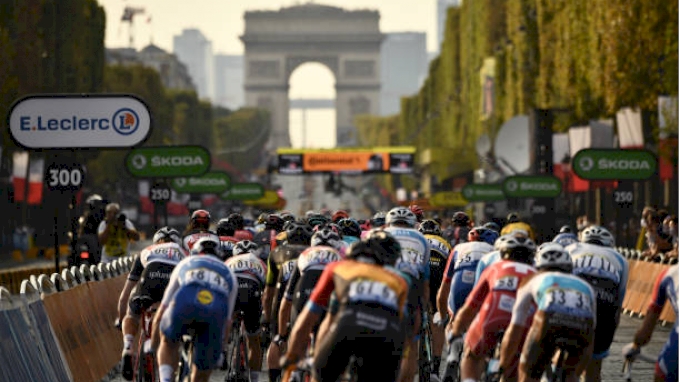What You Need To Know About The 2021 Tour de France's Eight Sprint Stages
What You Need To Know About The 2021 Tour de France's Eight Sprint Stages
The 2021 Tour de France features eight sprint stages. This is everything you need to know about the bunch kicks and the battle for the green jersey.
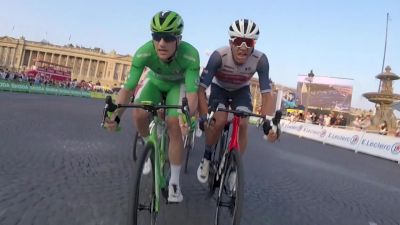
- Auto
- 1080
- 720
- 480
- 360
- 134
For sprinters, there is perhaps only one prize greater than a stage victory in the Tour de France, the green points jersey. This summer, the world's best sprinters will once again descend upon France to treat fans to the most high-stakes pack finishes of the year.
Join PRO to watch the 2021 Tour de France live and on demand in Canada on FloBikes. Exclusive highlights and content will be available to our worldwide audience!
Peter Sagan, the seven-time winner of the points competition, was considered unbeatable until Sam Bennett dethroned him in 2020. Sagan's versatility and Bennett's power combined with the backing of his Deceuninck – Quick Step team make them the two favorites for the green jersey.
However, there are no shortage of sprinters to contest stage wins, many of whom may also take a run at the overall points competition. Caleb Ewan (Lotto Soudal), Alexander Kristoff (UAE Emirates), Arnaud Démare (Groupama FDJ), Wout Van Aert (Jumbo Visma), and Mathieu Van Der Poel (Alpecin-Fenix), are all heavyweight favorites for the bunch kicks.
The 2021 route will feature eight sprint stages. The first of which arrives on stage three, finishing in Pontivy. Many of the stage opportunities will favor the pure sprinters, giving Sam Bennett a chance to defend his title. After Stage three and four in Brittany, the other flat stages include stage six finish in Chàteauroux, Stage 10 in Valence following the rest day, stage 12 in Nîmes, 13 in Carcassonne, 19 in Libourne, and the traditional grand finale on the Champs-Élysées in Paris for stage 21. Here is our breakdown of each sprint stage.
Stage 3: Lorient – Pontivy, 182km
The battle for green commences on stage 3 beginning in Lorient, the birthplace of the 2017 King of the Mountain winner, Warren Barguil. However, with a flat parcours favoring the pure sprinters, the French climber will be thoroughly outgunned on his home roads.
The riders embark on the 182 kilometer trek facing 2 category climbs before the run in to the stage finish in Pontivy and the first real test of the points classification. Pontivy is the birthplace of current UCI President David Lappartient, making its Tour debut.
The first sprint stage of the Tour de France may not be a straightforward day for the peloton. The coastal region of Brittany carries an ever-present risk of crosswinds and foul weather. Teams of sprinters and GC riders alike will be on high alert in the opening stages, attempting to keep their leaders near the front of the race and out of trouble.
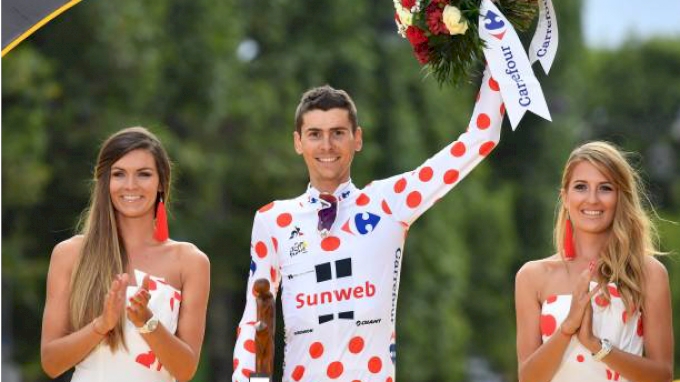
Stage 4: Redon – Fougères, 152km
Redon returns to the Tour de France, after a 10-year hiatus hosting a stage finish in 2011 that saw American Tyler Farrar win his first and only Tour stage. The short, 152 kilometer stage is the only part of Brittany yet to be visited by the race.
While a pack finish is expected, the exposed and technical roads of Brittany will once again make for a stressful approach.
The finish in Fougères boasts the Chateau de Fougères, the largest medieval fortress in all of Europe. After 700km of racing, the Tour bids farewell to Brittany before the first time trial on stage 5.
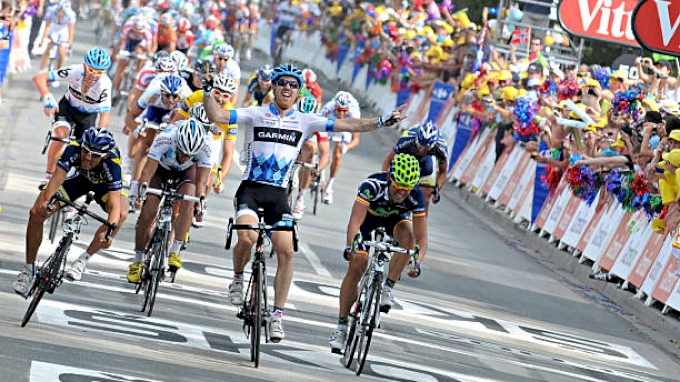
Stage 6: Tours – Chàteauroux, 144km
Borrowing well-known roads from Paris-Tours, the winds will likely be the big factor of the day in the final 75 kilometers. The domestiques will have their hands full, protecting their leaders and delivering them to an expected bunch or reduced group sprint.
The finish in Chàteauroux was the setting of Mark Cavendish’s first of 30 stage wins at the Tour de France. He would win again at Chàteauroux in 2011. The 1600m finishing straight is tailor made for the pure sprinters, but timing will be everything.
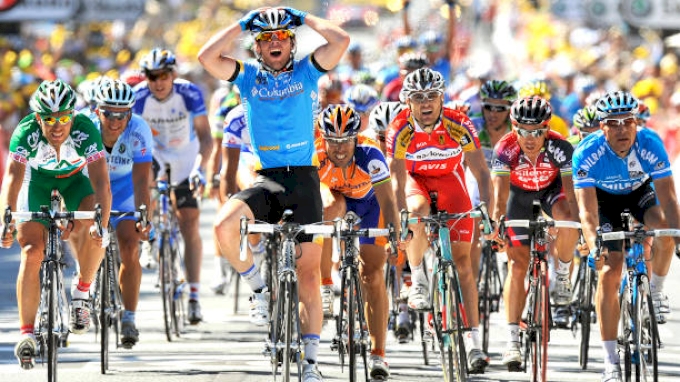
Stage 10: Albertville – Valence, 186km
After three days racing at altitude, the riders will leave the mountains behind to begin stage 10 in the Olympic city of Albertville, the host city of the 1992 Winter Olympic games.
Domestiques will once again have a hefty job ahead, protecting their leaders against the winds of the plains in the final 20km before the finish in Valence.
The regularly hosts both the Tour and Critérium du Dauphiné. Last visited by the Tour in 2018, the 3-time World Champion Peter Sagan took one of his 12 stage wins in Valence, inching out Alexander Kristoff and Arnaud Démare for victory.
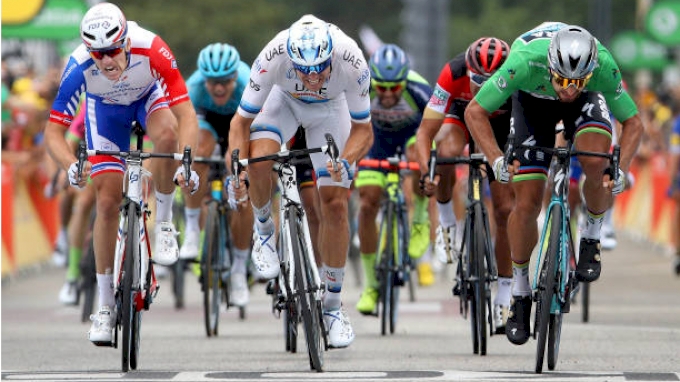
Stage 12: Saint-Paul-Trois-Chàteaux-Nîmes, 161km
The scenic stage 12 follows the Gorges de l’Ardèche, a first for the Tour de France. The sinuous canyon road culminate in what is expected to be a bunch sprint in Nîmes.
The ‘Pocket Rocket’ Caleb Ewan, was the most recent victor in Nîmes, winning a bunch sprint ahead of Elia Viviani and Dylan Groenewegen in 2019. Alexander Kristoff also notched a stage victory here in 2014.
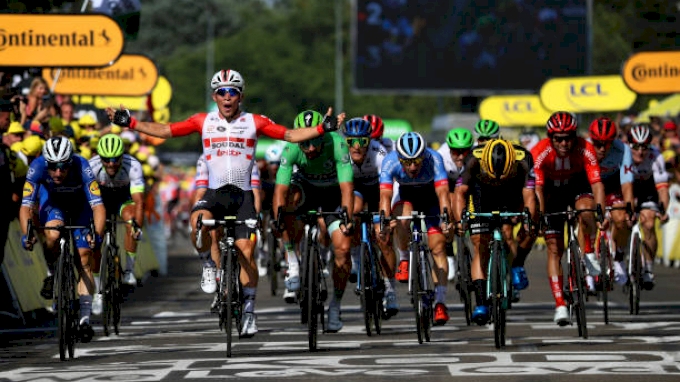
Stage 13: Nîmes – Carcassonne, 220km
The peloton departs Nîmes and its Roman arenas, which are considered to be some of the most well-preserved in the world, for another sprint stage.
Stage 13 sends the peloton due west for a 220 kilometer race that deposits the peloton at the base of the Pyrenees. A similar route was used in the Tour 15 years ago, but in 2021 it has been made 30 kilometers longer.
Race organizers explained the change at the route presentation in November, following the advice of former riders to avoid traffic furniture. “Safety is our priority,” Race Director Christian Prudhomme said. The citadel and ramps of Carcassonne will provide the backdrop for the finishing sprint.
After the celebrations in Carcassonne, sprinters will hunker down and focus on survival in the upcoming mountain stages.
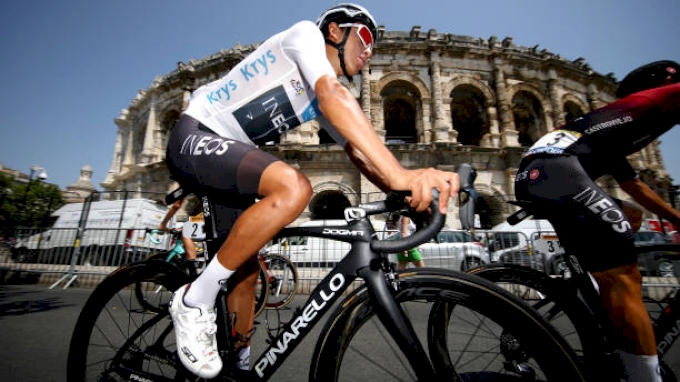
Stage 19: Mourenx – Libourne, 203km
Stage 19 begins in Mourenx for the first time in nearly 30. Sprinters that survived the mountains will be rewarded with a flat finish in Libourne as the points classification begins to wrap up. Racing fans will recall Eddy Merckx performance here in 1969, and Jacques Anquetil’s triumphant time trial victory in Libourne in 1957.
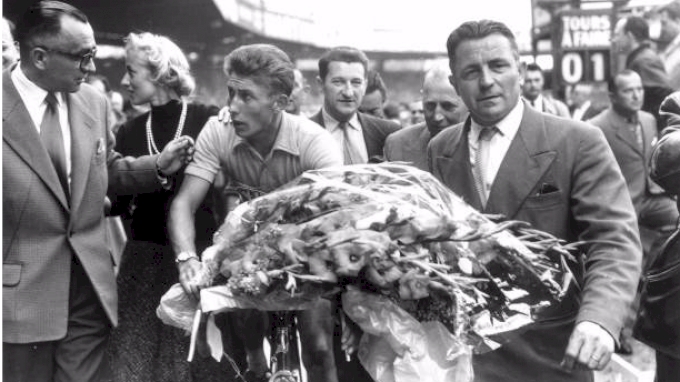
Stage 21: Chatou – Paris Champs-Élysées, 112km
Stage 21 of the Tour de France begins as a celebration for the yellow jersey winner, and finishes in the Super Bowl of bunch sprints.
Chatou will host the start of the Tour's traditional final stage into Paris for the fourth consecutive year in the department of the Yvelines, and will continue doing so until 2023.
Yvelines is clearly a region that loves cycling. In addition to its commitment to the Tour's iconic 21st stage, Yvelines has hosted the start of Paris-Nice for the past ten years now, and will welcome all cycling disciplines for the 2024 Summer Olympic Games.
The traditional parade and celebratory beginning of the stage will transition into full blown racing as the peloton flies past the Louvre's iconic glass pyramid en route to the stage's finishing circuits.
Sprint teams get down to business as the pelton enters the eight-laps circuit, which takes riders around the Arc de Triomphe, down the bone-jarring Champs-Élysées, around les Tuileries and the Louvre, across the Place de la Concorde and back to the thrilling sprint finish on the Champs-Élysées to conclude the 108 edition of the Tour de France.
